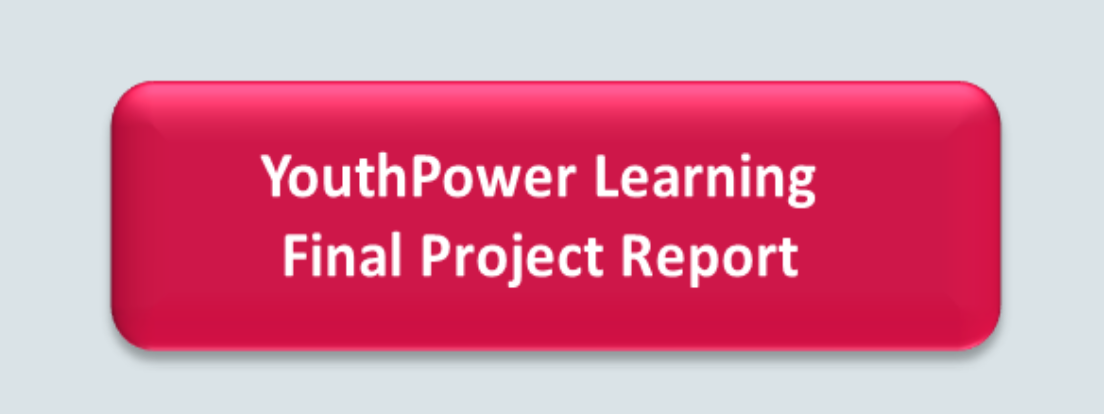
About the Project
YouthPower Learning was launched in 2015 with the aim of helping shape a new paradigm in youth development in low- and middle-income countries (LMICs). Its mandate was to generate and disseminate knowledge about how youth can contribute to broader development outcomes, such as employment or health status, for LMICs.
Funded by USAID, YouthPower Learning fell under the broader YouthPower mechanism. YouthPower Learning aligns with and supports the agency’s 2012 Youth in Development Policy, which seeks to improve capacity and enable the aspirations of youth so that they can contribute to, and benefit from, more stable, democratic, and prosperous communities and nations.
YouthPower Learning’s approach is to expand the evidence base for what works in positive youth development (PYD) and to promote and apply the evidence to improve practices across programs and sectors.
Over its five-year lifespan, YouthPower Learning contributed a wealth of tools and resources and aggregated and disseminated a robust body of evidence and knowledge, helping ensure that the right tools are in the right hands at the right time.
At the heart of these efforts is YouthPower.org, the premiere learning hub that serves as a repository of resources and events on PYD and cross-sectoral youth programming for practitioners around the world. YouthPower Learning also created YouthLead.org, the go-to global platform for young changemakers to coalesce and engage meaningfully in development priorities.
In addition, YouthPower Learning helped build a learning network and create a sense of community among youth practitioners around the globe through communities of practice, learning grants, events, and a PYD learning agenda—demonstrating the power of sharing collective knowledge and high-quality, accessible learnings.
The project led research, evaluations, and events designed to build the evidence base and inform the global community about how to help young people pursue their aspirations, empowering them to contribute to, and benefit from, the creation of more peaceful and prosperous communities. Key among these were the PYD Measurement Toolkit, featuring illustrative PYD indicators to bridge gaps across sectors, and the definitive Systematic Review of PYD Programs in Low- and Middle-Income Countries, which expands the existing evidence base and provide the foundation for new knowledge development.
YouthPower Learning also provided evidence and evaluation support to USAID Missions and offices through a variety of field support buy-in options.
These included:
- Program Design Guide for Activities that Engage Youth in Agriculture/Food Systems (Bureau for Food Security)
- Understanding and Tackling the Gendered Drivers of Poor Adolescent Mental Health (Office of Gender Equality & Women's Empowerment)
- YouthLead Platform (Latin American and Caribbean Bureau, Bureau for Food Security, Bureau for Democracy, Conflict, and Humanitarian Assistance,Bureau for Economic Growth, Education, and Environment, and Europe and Eurasia Bureau)
- Considerations for Index Testing and Partner Notification for AGYW (Office of HIV/AIDS)
- Support a Qualitative Study on Youth and Adolescents’ Awareness and Perspectives of and Experiences on MMD/S (Office of HIV/AIDS)
- Applications of Effectuation Theory on Youth Entrepreneurship Programs (Africa Bureau)
- Youth-related Assessments for USAID Missions
- Armenia: Cross-Sectoral Youth Assessment
- Democratic Republic of Congo: Rapid Youth Assessment and Activity Design
- Ethiopia: Cross-Sectoral Youth Assessment
- Guinea: Cross-Sectoral Youth Assessment
- Honduras: USAID Development Objective 2 Youth Assessment
- Kenya: Cross-Sectoral Youth Assessment
- Kyrgyz Republic: Cross-Sectoral Youth Assessment
- Liberia: Youth Assessment
- Nigeria: Workforce Development and Youth Employment Assessment
- Mauritania: Cross-Sectoral Youth Assessment
- Rwanda: Youth Assessment
- Somalia: Cross-Sectoral Youth Assessment
- Zambia: Mission-Wide Youth Assessment
The cumulative impact of this work is that the development community is no longer asking why we should engage youth as partners in development, but rather how to bring forward new evidence and promising practices with the aim of better engaging youth as meaningful contributors to development outcomes.
Prime Implementer
Implementing Partners
International Center for Research on Women
Khulisa Management Services
Mathematica Policy Research
Results for Development Institute
Social Development Research Group. School of Social Work at the University of Washington
Royal Children’s Hospital Academic Centre at the University of Melbourne
Young Americas Business Trust
Stay Connected
There are several ways you can explore more about YouthPower Learning’s work and engage with the project’s next iteration: YouthPower Learning2: Learning and Evaluation.
- Email info@youthpower.org
- Download the YouthPower Learning final project report
- Explore YouthPower Learning’s list of resources and event recordings about PYD
- Join YouthPower.org and receive important PYD updates (If you are a member of YouthLead, you are automatically a member of YouthPower.org, so there is no need to re-register.)
- Connect with YouthLead
- Contribute to the PYD Learning Agenda
- Follow YouthPower Learning on Twitter and Facebook



